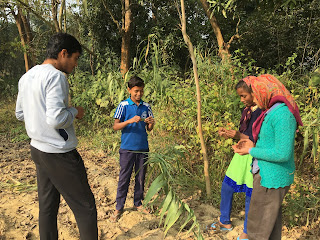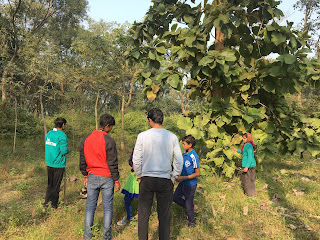In the local dialect of our village, a word called “थुथुर” is commonly used to refer to a person who repeats mistakes even after being told not to do so. This word has originated from the name of a plant. In the forest, there is a plant which grows own it own without any care. It is about four feet high, thin-looking and found in a cluster. Because it is of no specific importance, it is oftentimes cut but wherever it is thrown, there it starts regrowing. It is called “थुथुर” plant and “थुथुर” are those people who refuse to change their behaviours and ignore the advice around them.
In the forest, there are several plants and trees whose name is used to household references. This shows how much the rural people are attached to their natural resources. And because of this faith-based attachment, these people have their own beliefs when it comes to taking care of the environment. Take the case of bathing in the river. It is considered that when you bath in the river, your misdeeds are forgiven and because of this reason, rural people keep their rivers clean. Scientifically speaking, on the outskirts of a river are different tress the flowers of which fall into the river. They get mixed with water and impart medicinal qualities to it which help people with skin troubles and other health issues.
@thegirl_film team is regularly making efforts to make kids learn mythological, traditional and scientific ideas about nature and the environment. This will make their conceptual grasp logic-based as well as help them stay emotionally in touch with their roots. Myths were formed when science was not there so each of them has its own space in the world of nature.
Read our another article here
Support Our work here
Thank You







Comments
Post a Comment